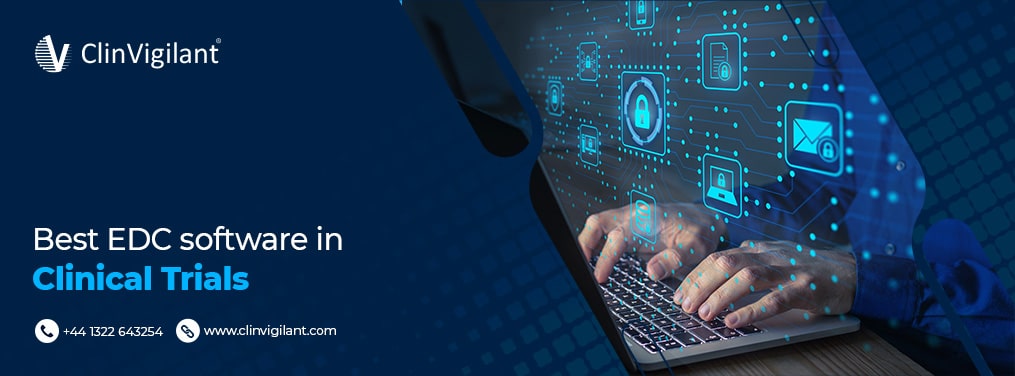
Electronic Data Capture (EDC) is a crucial component in the realm of data management, revolutionizing the way data is collected, managed, and analyzed across various industries. EDC refers to the process of capturing and recording data electronically, replacing traditional paper-based methods. It encompasses the collection, storage, and manipulation of data in digital formats, streamlining the entire data management lifecycle.
The importance of EDC lies in its ability to enhance data quality, accuracy, and efficiency. By utilizing EDC software, organizations can collect data in real-time, eliminating the need for manual data entry and reducing the risk of errors. Moreover, EDC systems offer advanced functionalities such as automated data validation, audit trails, and data integration, enabling researchers and organizations to maintain data integrity and ensure regulatory compliance.
In various industries such as healthcare, clinical research, pharmaceuticals, and market research, efficient EDC software plays a pivotal role in accelerating the data collection process, improving data accuracy, and facilitating timely analysis. It enables researchers, clinicians, and professionals to access comprehensive and reliable data, leading to informed decision-making and improved outcomes.
Overall, the utilization of efficient EDC software is crucial for organizations seeking to optimize data management processes, enhance data quality, and gain actionable insights from their data in a rapidly evolving digital landscape.
Understanding Electronic Data Capture (EDC) & eCRF In Clinical Trials:
In the realm of clinical research, the collection, management, and analysis of data are of utmost importance. Traditionally, paper-based systems were used to capture and store data in clinical trials. However, with the advancements in technology, electronic data capture (EDC) systems and electronic case report forms (eCRFs) have gained prominence as more efficient and reliable alternatives. In this article, we will delve into the concepts of EDC and eCRF and explore their significance in modern clinical trials.
Electronic Data Capture (EDC)
Electronic data capture (EDC) refers to the process of capturing and managing clinical trial data electronically. It involves the use of computerized systems to collect, validate, and store data generated during the course of a clinical trial. EDC in Clinical Trials systems have revolutionized the way data is collected and managed, offering numerous advantages over traditional paper-based methods.
Advantages of EDC:
a. Data accuracy and integrity: EDC systems minimize the risk of transcription errors and data discrepancies through built-in validation checks and real-time edit checks, ensuring the accuracy and integrity of the data.
b. Efficient data collection: EDC enables real-time data collection, allowing investigators to enter data directly into the electronic system at the point of care. This eliminates the need for manual data entry and reduces the potential for data entry errors.
c. Remote access and monitoring: EDC systems facilitate remote access to data, enabling investigators, monitors, and sponsors to securely access and review trial data from any location, enhancing efficiency and collaboration.
d. Improved data quality: EDC systems support automated data checks and alerts, promoting data quality and enabling early identification and resolution of data discrepancies.
e. Streamlined data management: EDC systems automate various data management tasks, such as data cleaning, query management, and audit trail generation, reducing administrative burdens and enhancing overall efficiency.
Electronic Case Report Form (eCRF)
An electronic case report form (eCRF) is a digital equivalent of the traditional paper-based case report form used to collect patient data in clinical trials. It serves as a standardized tool for capturing and organizing data relevant to the study protocol. eCRFs are typically part of an EDC system and provide a structured framework for data entry and management.
Key features of eCRFs:
a. Data structure and organization: eCRFs in clinical trials are designed to capture data in a structured format, ensuring consistency and standardization across different sites and investigators. They include predefined fields for specific data elements, allowing for systematic data collection.
b. Data validation: eCRFs incorporate built-in validation checks to ensure data completeness, accuracy, and adherence to predefined ranges or formats. This helps in maintaining data quality and reducing errors.
c. Remote access and real-time updates: eCRFs can be accessed remotely, allowing investigators to enter data directly into the system from various locations. Additionally, real-time updates ensure that the data is available for analysis and review as soon as it is entered.
d. Data security and confidentiality: eCRFs are equipped with robust security measures to protect the confidentiality and integrity of patient data. Access controls, encryption, and audit trails are implemented to comply with data protection regulations.
Factors to Consider When Choosing EDC Software:
When choosing an Electronic Data Capture Clinical Trials software solution, it is crucial to carefully consider specific requirements and objectives. This ensures that the chosen software aligns with the needs of the organization and optimizes the data capture and management process. Several essential factors should be considered during the selection process.
- Firstly, the user interface and ease of use are vital considerations. The software should have an intuitive and user-friendly interface, allowing researchers, data managers, and other stakeholders to easily navigate and perform tasks without extensive training. A user-friendly EDC system promotes efficiency and reduces the learning curve for new users.
- Data security and compliance are paramount in any EDC software selection. The software should have robust security measures in place to protect sensitive patient data and ensure compliance with relevant regulations, such as HIPAA or GDPR. Encryption, access controls, and audit trails are some essential features to look for in an EDC solution.
- Customization options and scalability are also significant factors. Different studies have unique requirements, and the software should offer flexibility to tailor forms, workflows, and data capture fields to specific study protocols. Additionally, the chosen EDC system should be scalable, capable of handling increasing data volumes and accommodating future expansion or changes in study design.
- Integration capabilities with other systems are crucial for seamless data flow and collaboration. The EDC software should have the ability to integrate with other research systems, such as electronic health record (EHR) systems or laboratory information management systems (LIMS), to streamline data collection, eliminate manual dawata entry, and reduce errors.
- Finally, reporting and analytics features play a vital role in deriving meaningful insights from collected data. The EDC softre should provide robust reporting capabilities, allowing users to generate custom reports, visualize data trends, and perform statistical analysis. Advanced analytics features, such as data mining and visualization tools, can further enhance the value of the collected data.
How ClinVigilant can help you by Providing the best solutions-
As a leading Clinic for EDC trials, clinvigilant specializes in achieving the objectives of clinical development from phase II to phase IV clinical studies across different therapeutic areas. It has a dedicated team of experts who invest thousands of hours in research and innovation in the area of drug discovery. Throughout this extensive process, the clinic fosters collaborative relationships and cultivates long-term partnerships that are integral to its success.
Their team comprises highly trained and experienced clinical research professionals, each equipped with expertise in medical writing, clinical trial monitoring, biostatistics, pharmacovigilance, and regulatory support.
When choosing an EDC software solution, it’s important to consider factors such as the specific needs of your organization, regulatory compliance requirements, scalability, and ease of use. By evaluating these top EDC solutions and conducting a thorough analysis of your requirements, you can make an informed decision that aligns with your business goals.
Conclusion
The use of reliable Electronic Data Capture (EDC) software plays a crucial role in efficient data capture and management. Throughout this discussion, we have highlighted the significance of using robust EDC solutions to streamline data collection, ensure data integrity, and enhance overall research and clinical trial processes.

